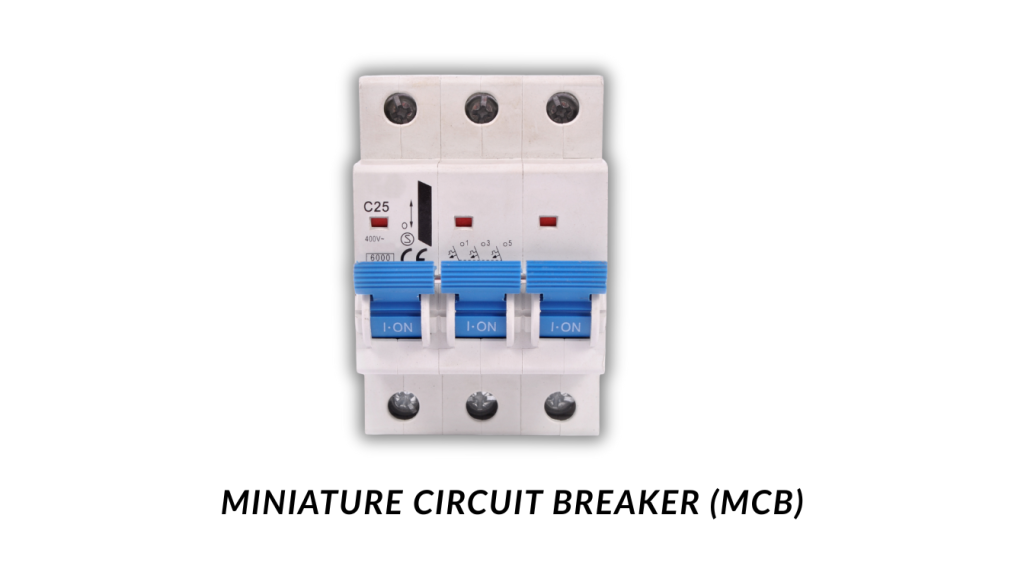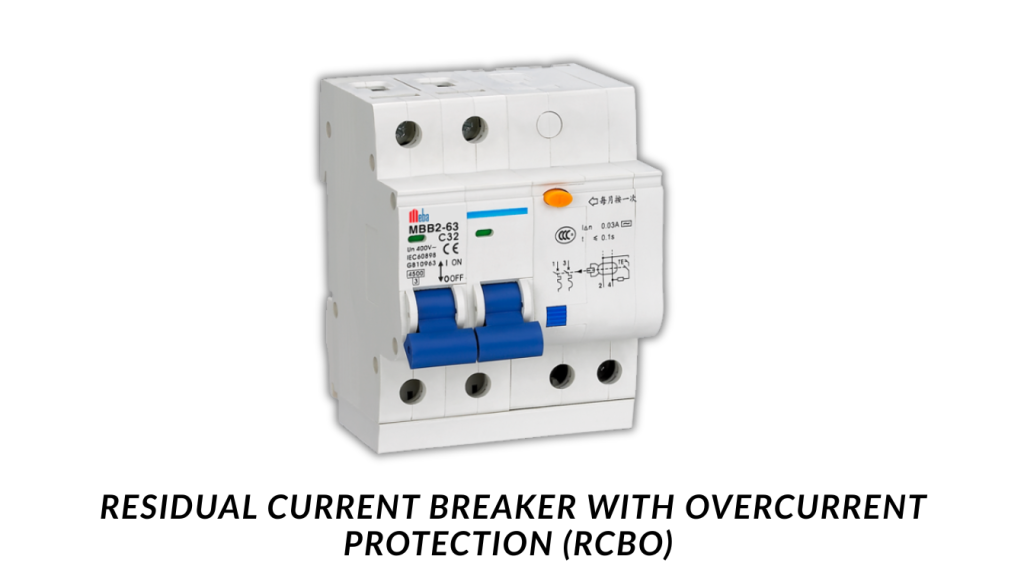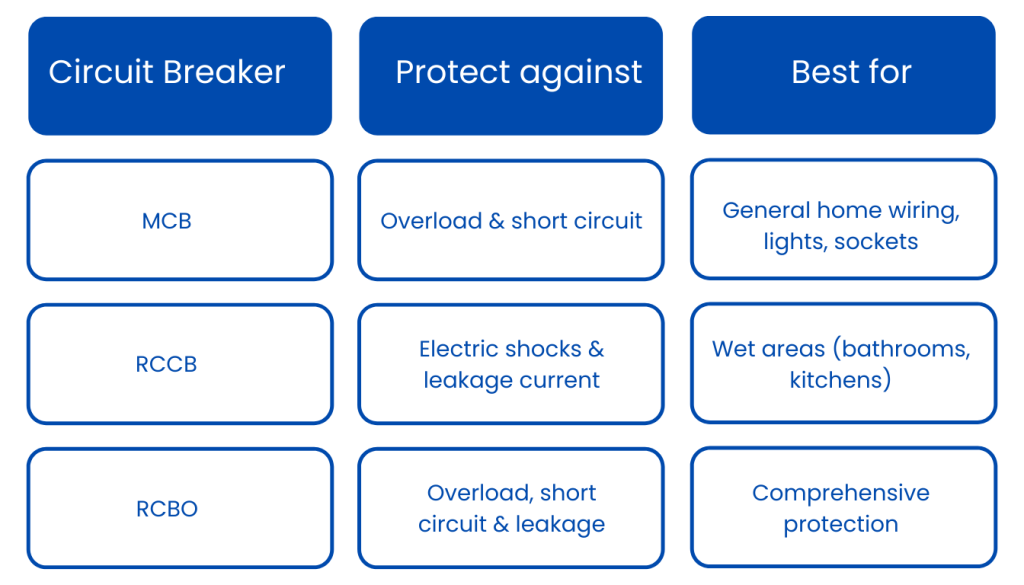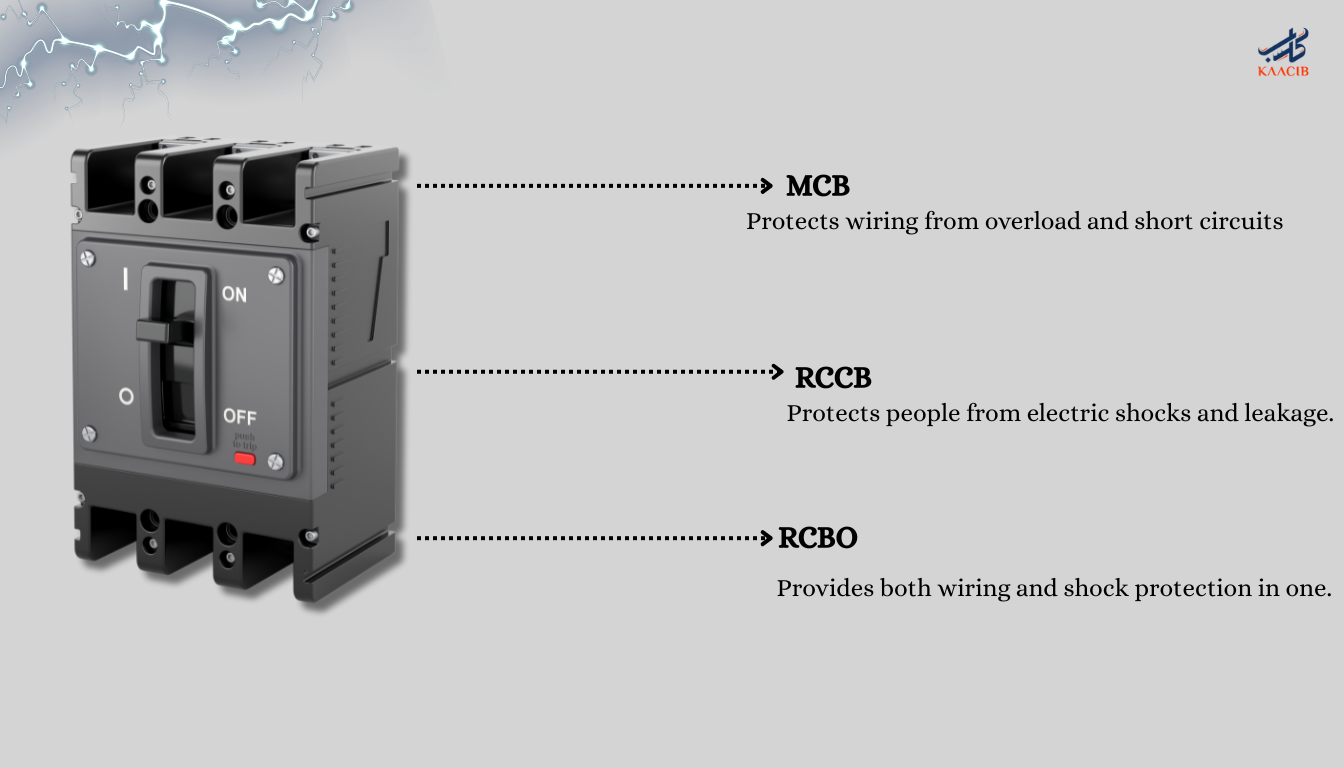Electricity makes modern life easier, but it can also be dangerous without proper safety devices. That’s where circuit breakers come in. These small but powerful devices protect your home from short circuits, overloads, and electric shocks. In this blog, we’ll explain the different types of circuit breakers commonly used in households — MCB, RCCB, and RCBO — so you know how each works and why they matter.
What is a Circuit Breaker?
A circuit breaker is an electrical safety device designed to automatically stop the flow of current when it detects a fault, such as:
Overload (too much current)
Short circuit (direct connection between live and neutral wires)
Leakage current (when electricity flows through unintended paths, like the human body)
Unlike old-fashioned fuses, circuit breakers can be reset after tripping, making them more reliable and convenient.
Types of Circuit Breakers in Homes
1. Miniature Circuit Breaker (MCB)
Purpose: Protects electrical circuits from overloads and short circuits.
Where used: Lighting systems, household wiring, small appliances.
How it works: Trips automatically if the current goes beyond a safe limit.
Example: Prevents damage when too many devices are plugged into a socket.
Best for: Basic protection of your home wiring.

2. Residual Current Circuit Breaker (RCCB)
Purpose: Protects people from electric shocks caused by leakage currents.
Where used: Bathrooms, kitchens, outdoor connections.
How it works: Detects leakage current (e.g., electricity flowing through a person to the ground) and shuts off the supply instantly.
Example: If someone touches a live wire accidentally, the RCCB trips to prevent electrocution.
Best for: Personal safety and shock protection.

Residual Current Breaker with Overcurrent Protection (RCBO)
Purpose: Combines the functions of MCB + RCCB.
Where used: High-risk areas where both fire safety and personal safety are important.
How it works: Provides overload/short-circuit protection (like MCB) and leakage protection (like RCCB).
Example: Ideal for protecting appliances like washing machines or outdoor equipment.
Best for: Complete home protection in one device.

Quick Comparison Chart

Why Circuit Breakers Are Essential for Homeowners
Prevent fires caused by overloaded circuits
Protect appliances from sudden surges
Ensure personal safety from electrical shocks
Increase home value by complying with electrical safety standards
Looking to upgrade your home’s electrical safety? Check out our professional Electrician Services for reliable installation and maintenance.
FAQs
Q1: Which is better for homes, MCB or RCCB?
A: Both are important — MCB protects wiring, while RCCB protects people from electric shocks.
Q2: Is RCBO necessary in every home?
A: RCBO offers the best all-in-one protection, but many homes use a mix of MCBs and RCCBs for cost efficiency.
Q3: Can I replace an MCB myself?
A: It’s safer to hire a qualified electrician since improper installation can be dangerous.
Q4: Do circuit breakers need maintenance?
A: Yes, regular checks by professionals ensure your breakers are working correctly.
Conclusion
Understanding the different types of circuit breakers helps you make smarter decisions about your home’s electrical safety. Whether you choose MCB, RCCB, or RCBO, these devices play a crucial role in protecting your family and property. For safe installation and expert advice, consider booking professional Electrician Services.






